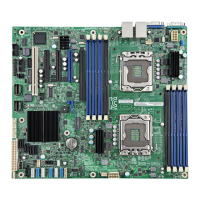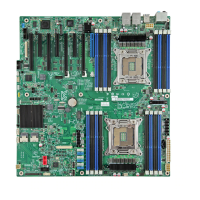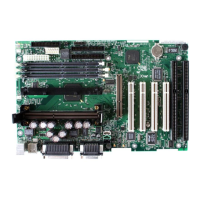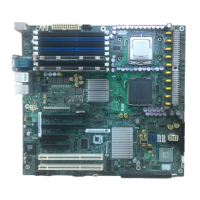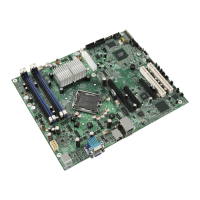Basic Decoding of a SEL Record
System Event Log Troubleshooting Guide for EPSD
Platforms Based on Intel
®
Xeon
®
Processor E5 4600/2600/2400/1600/1400 Product Families
10 Intel order number G90620-002 Revision 1.1
2.2 Notes on SEL Logs and Collecting SEL Information
Whenever you capture the SEL log, you should always collect both the text/human readable version and the hex version. Because
some of the data is OEM-specific, some utilities cannot decode the information correctly. In addition with some OEM-specific data
there may be additional variables that are not decoded at all.
An example of not decoding all of the information is the BIOS timestamp synchronization event log. This event can be logged by the
BIOS during POST or it can be logged by the BIOS SMI Handler when a system is requested to do a shutdown or a restart from the
operating system (OS). See section 2.2.1 for examples. Most utilities report this as just a BIOS event and do not differentiate
between the two. But sometimes it is useful because you can see the sequence of events better. For example if there are multiple
sequences of the timestamp synchronization events, was the power lost after booting to the OS and then the system restarted, was it
multiple POST events, or was it a restart from the OS?
An example of not decoding all the information is with the PCI Express* errors and some of the Power Supply events. For the PCI
Express* errors the type of error and the PCI Bus, Device, and Function are all a part of Event Data 1 through Event Data 3. See
section 2.2.2. For the Power Supply events when there is a failure, predictive failure, or a configuration error, Event Data 2 and Event
Data 3 hold additional information that describes the Power Supplies PMBus* Command Registers and values for that particular
event. See section 2.2.3.
2.2.1 Examples of Decoding BIOS Timestamp Events
The following are some samples of BIOS timestamp events during POST and during an OS shutdown.
2.2.1.1 BIOS POST Timestamp Events
RID[19][01] RT[02] TS[57][49][6A][4E] GID[01][00] ER[04] ST[12] SN[83] EDIR[6F] ED1[05] ED2[00] ED3[FF]
RID (Record ID) = 0119h
RT (Record Type) = 02h = system event record
TS (Timestamp) = 4E6A4957h
GID (Generator ID = 0001h = BIOS POST
ER (Event Message Revision) = 04 = IPMI v2.0
ST (Sensor Type) = 12h = System Event (From IPMI Specification Table 42-3, Sensor Type Codes)
SN (Sensor Number = 83h
EDIR (Event Direction/Event Type) = 6fh; [7] = 0 = Assertion Event
[6:0] = 6fh = Sensor specific
ED1 (Event Data 1) = 05h = Timestamp Clock Synchronization
ED2 (Event Data 2) = 00h = First in pair
RID[1A][01] RT[02] TS[57][49][6A][4E] GID[01][00] ER[04] ST[12] SN[83] EDIR[6F] ED1[05] ED2[80] ED3[FF]
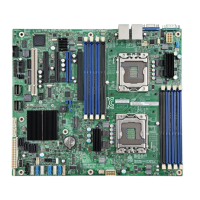
